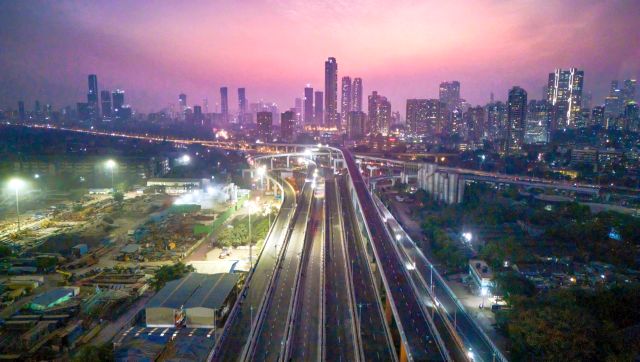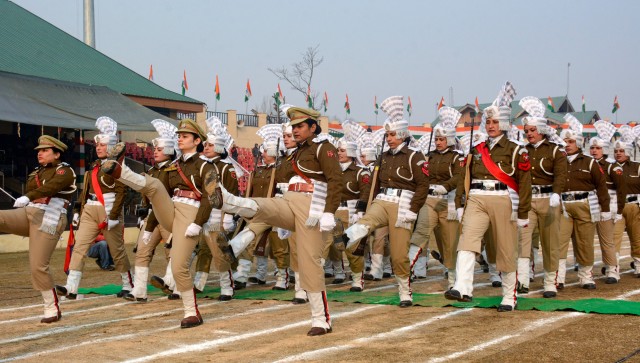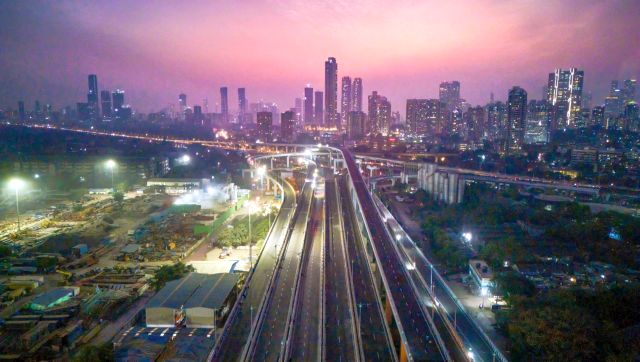It makes a nice headline: Kunte walks the talk, conducts early morning surprise checks. It also makes for a nice photo-op, except that the published picture was tiny, close to being a postage stamp but you cannot grudge the man, Sitaram Kunte, his moment in the sun. After all, isn’t he the new municipal commissioner of Mumbai?
If a civic chief keeps his ear to the ground, it would serve two purposes. One, understand the concerns of the common people whose lives are more intertwined with a city government than the state or the centre and two, understand how the political classes he represents are at a variance from on-the-ground realities.
By walking, seeing and listening, Kunte would get to appreciate better how a civic body functions, or more importantly, does not function. Those who sit in their offices and read files and notations, listen to lower officials claiming that things are in order can be so misleading that the city could remain ungoverned or misgoverned. In short, Kunte is on to a good thing. Just like RA Rajeev in Thane, who earlier worked with Mumbai’s civic body now presided over by Kunte, walked to road and found so many ills that perhaps a lifetime would be required to bring it to order. Now, Rajeev walks less, if at all.
But soon, Mr Kunte, you’d tire of it all, unless the walk on Worli Seaface and Priyadarshini are going to be extended to other parts, from Colaba to Dahisar, to Mulund, to Mankhurd. Across the city, the same problems would be found repeated – uncollected garbage, unattended drains, sidewalks occupied by hawkers, and shops extending their businesses to the sidewalks, the municipalised bus service deteriorated to the extent that they don’t stop the buses at the kerb but full 10 feet away from them.
That kind of normal daily walks would help both him and the city – their health would be in fine fettle. He would need to assemble only departmental heads at dawn and take them to any spot at random and examine the status of the civic body’s claimed services. No ward need be ever alerted but the others gathered asked to merely follow the chief who can and should stop just anywhere and commence the inspection. There would be ample rewards for the citizens who too could—and should—be asked, “Why have you thrown the garbage here?”
A point to note in this much-valuable walks for first hand assessment is that a problem resolved at one location does not naturally imply that a similar problem elsewhere has automatically been sorted out. Garbage cleared after a walk at one place, for instance, is often to put a lid on a local issue lest a more thorough probe is not undertaken on the entire problem because they arise due to a systemic failure for the usual reasons: apathy and corruption. Each spot would require not just a visit but also a revisit. They have immense uses.
A day—yes, a full day—spent in the civic schools would be valuable, only that once he enters, the gates should be shut and see when the teachers come in and how they teach, how the midday meals are prepared and served, how the toilets are managed, and ask the girls, why do you think other girls quit school early. Their complaints would be the same as other slum dwellers’—poorly kept toilets, lack of privacy. Then visit the garbage dump yards and see the manipulation of records, starting from faked number of trips by the contractors.
The officials, hopefully red-faced after each day’s voyage of discovery which would only confirm that things are at odds to the claims made in the files and file notations; the papers therein are only supposed to mislead, not inform, not document realities. Being a seasoned bureaucrat, the new civic commissioner should be aware of how it all happens, where benchmarks are outlays, not outcomes; concerns are not how well to do a piece of work but how well to take the cream off it. So when a wise civil servant walks, he can bring in a paradigm shift. Hopefully, that is.
What looms ahead is the risk of boredom because he is likely to get to see much of the same thing everywhere and slide into looking at only files, hold review meetings where he would be told “All eez wayl and the city back to square one. Just like when police commissioners surprised police station by descending on them. Once the novelty wore off, the photo-ops and headlines, even stories ceased, everything was back to the usual: unregistered FIR and even complaints, badly kept lock-ups, disdain for the citizens and their woes.
That Kunte has to avoid and be remembered for a man who made a difference, just like Sadashiv Tinaikar did, unbending adherence to rules which were flouted by all – elected representatives to the subordinate officialdom; like DM Sukhtankar who put even the top politicians in their place by never suffixing their names with a ‘saheb’ or a ‘sir’. Now that he has done two days of walk—the media has not reported the third yet—he has to prove that he is at it and make a mark on the city. Or else, the only beneficiary would be the PRO with an enriched scrapbook.


)




)
)
)
)
)
)
)
)